As a social media marketer for schools you’re probably managing multiple social networking accounts to reach your target audiences: students, parents, alumni, and your local community.
Engaging new students, keeping parents up to date, and interacting with your school communities is certainly a full day’s work but by implementing smart social media strategies it can be more engaging, fun, and beneficial for your school.

We took a look at some of the different ways schools are using social media successfully and came up with a list of actionable recommendations you can start implementing today. Start engaging your school community through social media with these helpful tips:
Engage With Your School’s Potential Student Audience
One of the most powerful things about social networking sites is the size of their community reach online. With so many people actively using social networks the opportunities to get in front of new, potential students and their parents are endless.
Team Up with Student Influencers
If there’s one thing millennials are good at, it’s social media marketing. They know how to use it and trust it. Social media doesn’t just fuel their social lives but their shopping habits as well. In fact, 70% of teens trust social media influencer marketers over traditional corporate ads or celebrity endorsed products.
A great way to expand your school’s visibility is to team up with a social media influencer. Start with your current student body and school alumni community. Who has a big enough social following you could get in front of? Search on Instagram and Twitter to see who’s hashtagging and tweeting about your school. Who’s following? Images of your school, fun activities, sports, and branding are all great, natural content for a social media influencer to use.
Connect with them and start building a relationship so you can work together to engage your community.
The University of Central Florida has a Social Media Ambassador Program where student social media ambassadors create, collaborate, and market school-related content on their social channels on behalf of the university.
After searching through social media looking for their school keywords and related content, they came across a student who had 10,000 Youtube subscribers and was already promoting UCF on her channel. It’s a complete win-win for students and schools. Students get experience working with the Communications and Marketing departments and schools expand their social reach.
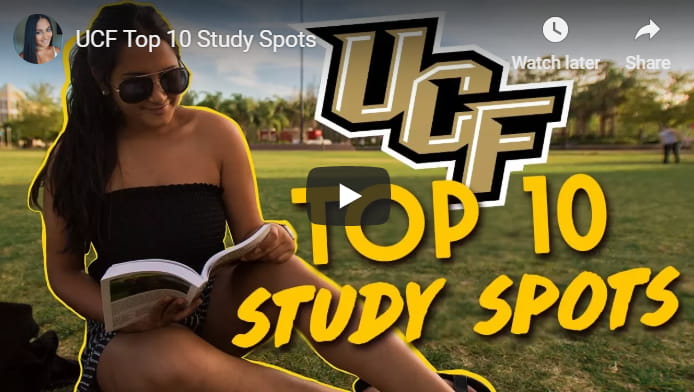
Schools Can Keep Current Students Engaged
Whether you’re managing social media for a University or High School, your social efforts should be aimed towards keeping your students, parents, staff, and community engaged. One of the best ways to do this is through Facebook Groups.
Facebook Groups for Schools
Justin Gaudet, Sales and Marketing Manager at CanScribe Career College shared that his best social media move was creating a school Facebook Group for his students.
“I realized that it is very hard for students to interact with each other through our Facebook Page, so I created a closed Facebook Group that I recommend students and graduates join. With our first 150 members, there were (and continue to be) hourly posts with the most amazing support. Students are constantly supporting each other, graduates are posting about their new jobs, and the social media engagement has been tenfold what it was only days before.”
Facebook Groups for schools inspire people to engage with each other because it has more of a community feel than simply following a Facebook business page. Facebook page marketing has become more limited, and your followers don’t see nearly as many updates and posts unless they’re sponsored ads.
Facebook Group followers will receive a new notification each time something is posted in the group (unless they decide to turn off the notifications). You can interact with your group members, send out polls, and share content. You can also make your school Group public or private.
How to Set Up a Facebook Group for Your School Community
- Under Your Facebook Account click the “Groups” option and then “Create Group” on the top left.
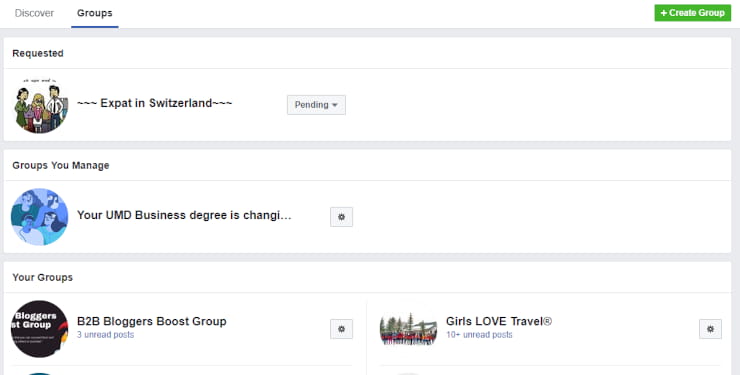
- You will then be asked for your group name and to add some people. You can also choose your privacy setting whether you want it closed, public, or secret. A public or closed community could be great for your local community, parents, or alumni. A secret community is great for more exclusive groups such as school administrators or teachers.
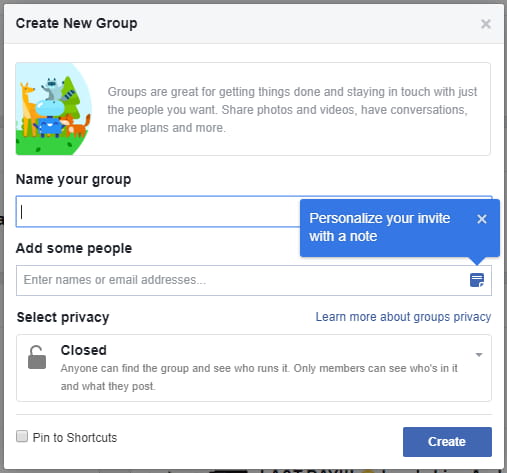
- Personalize your Group by adding a cover photo and description of the group.
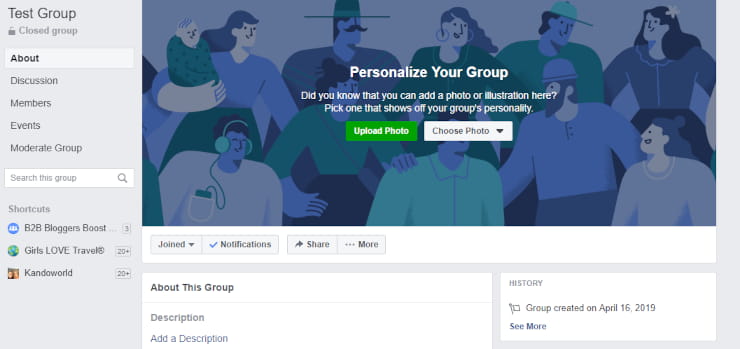
Keep Your School’s Parents up to Date
The only audience in your school community that is as important as your students is their parents.
Parents want to be informed of what’s happening at school from events and awards to important updates like holidays and school closings. Printed school newsletters can get misplaced or accidentally thrown out, an email from the principal might get lost in the spam folder but giving parents a consistently updated, easily accessible source to get important information about what’s going on at school makes life easier for you and for them.

School Blog
A school blog is another great way to engage with your community of parents. Having a school blog that informs your community about teaching and learning, with the aim of sharing knowledge with parents, is a great way for you to help parents deal with issues that affect their children.
Systems and processes have most likely changed for many parents since they were in school. Some may struggle with how to help their children with their school work. Any school resources you can provide for parents will help them better understand how to support their children’s’ education.
Sharing your school’s blog articles and resources on social media helps to spread the word amongst parents and the community.
As we mentioned above, a Facebook group community for parents to refer to for school news and updates and communicate with each other can be very beneficial. Keeping a close moderation on these types of online community Groups is recommended. Social media can be a temperamental communication channel but if you closely moderate the groups’ comments and participation you can reach out to followers directly before they escalate.
Encourage Participation at Live School Events
Whether it’s a sports game or live concert, live events generate excitement for your school and your students. They get together with their friends, take photos, and share videos on social media – why not take advantage of all that organic social media activity about your school?
Live Social Media Wall
Give your event a Hashtag, and if your school doesn’t have one, create one. Build the hashtags around the marketing of your school event promoting your pages on social media.
At the school event, you can display a live social media feed on a screen that curates your students’ hashtagged photos, videos, and posts for all to see. Not only is it a cool feature that incentivizes students to get their photos up but anyone else who may be checking out your social (new students) will see natural, user-generated content about your school.
Free marketing at its best!
With the right social media tool such as Juicer, you can also display your social media feed on your school website. Similar to how the social wall works, your students’ content will be displayed on your school website’s social feed as well.
Princeton University does a great job using its social media feed on its school’s homepage to keep visitors updated on what’s going on around campus. They use Facebook, Twitter, and Instagram posts to curate their school’s social content into a single section on their website.
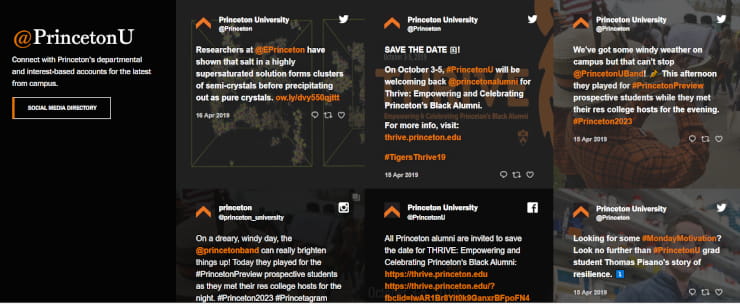
Social Media Education for Students
Whether schools choose to include social media into their learning curriculum or not, students are being exposed to social starting at an early age. Schools have an opportunity to educate students on the proper use, benefits, and risks involved with social media.
Social media has cemented itself as a legitimate business resource for marketing, networking, and ongoing education. Using social media experiments for business projects can also provide real-world experience.
Here are some creative ways educators have used social media for students in the classroom:
- Make international connections with classrooms throughout the globe with digital penpals
- Encourage students to network and share ideas, learnings, and opinions on a social site like Twitter. Use a branded classroom hashtag to keep track of their conversations and successes.
- Use Pinterest as a resource for digital posterboards for projects.
- Create private Facebook groups for your classes to collaborate on group projects or assignments.
- Embed a social wall on your education organization’s website to communicate with your students in a more dynamic way.
There you have it. We hope you’ve learned some different ways you can use social media to promote your school and make your social efforts easier and more rewarding. How have you used social media for your school? We would love to know! Please share in the comments below.
